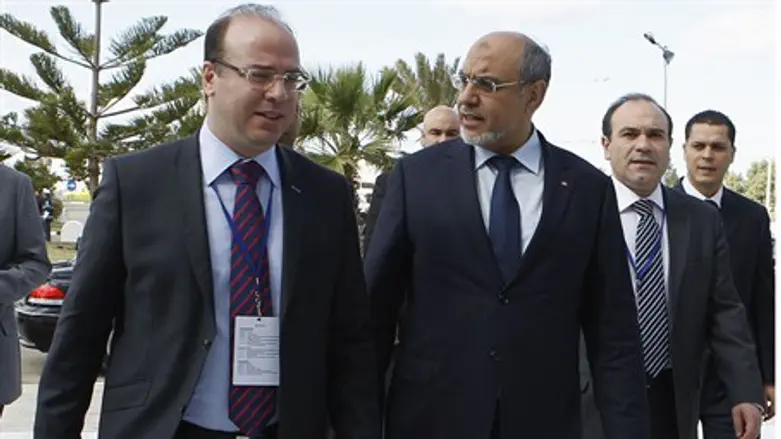
Tunisia's tourism minister said on Tuesday that the annual Jewish pilgrimage to the Tunisian island of Djerba should be maintained as a symbol of the North African nation's openness to the world.
According to a report in The Associated Press, tourism minister Elyes Fakhfakh told journalists on the sidelines of a Mediterranean tourism conference that the pilgrimage, set this year for May 9, should be protected.
“Celebrated for hundreds of years, this religious rite is an achievement that should not change because it illustrates the openness of Tunisia to the world,” Fakhfakh was quoted as having said. “It is an achievement of the revolution, which established freedom of worship.”
Thousands of Jews gather every year on Lag B’Omer at the El Ghriba synagogue, the oldest Jewish house of worship in Africa, which is located on Djerba.
Fakhfakh's remarks come at a time of uncertainty for Tunisia's small Jewish minority, which has been alarmed by the rise of ultraconservative Islamist groups spouting anti-Semitic rhetoric.
Today, Tunisia has a Jewish population of only 1,500, but in the 1960s there were 100,000 Jews in the country. Most left following the 1967 Six-Day War, but the emigration to Israel started in the 1050s.
Most Tunisian Jews now live on Djerba, near the country’s border with Libya, once called the Island of Kohenim because so many Jewish families who could trace their lineage to Moses' brother Aaron, the first High Priest lived there.
Tunisians overthrew dictator Zine El Abidine Ben Ali last year, but in the unrest following his fall, the annual pilgrimage was canceled. Since then, Tunisia's moderate Islamist Ennahda party has ascended to power.
The once-banned Ennahda party received 89 out of 217 seats, more than triple the seats won by any other party, in Tunisia’s first democratic election last October. It subsequently said that Islamic law will not be enshrined in the country's new Constitution.
Tunisia’s president, Moncef Marzouki, recently called on the country’s Jewish population to return to his country, saying Tunisia’s Jews are full-fledged citizens and those who had left the country were welcome to return.
Jews have been especially worried by the appearance of the ultra-conservative Muslims known as Salafis in Tunisia. Recently, Tunisia's Jewish community said it would be making an official complaint regarding anti-Semitic slogans that were chanted at a Salafi protest.
Prime Minister Hamadi Jebali of the Ennahda party said Monday, however, that “the Jewish pilgrims are welcome to Djerba,” according to AP. Jebali also said the country's beaches and coastal bars will remain open for business as tourist dollars prove their primacy.
“We will respect the traditions of our visitors in their food, and clothing and lifestyle,” Prime Minister Hamadi Jebali said at a conference to promote tourism held on the island of Djerba.
Tunisia relies on tourism for almost 7 percent of its gross domestic product. The nation, whose revolution was fueled by economic woes, has seen tourism revenues drop by more than a third.
